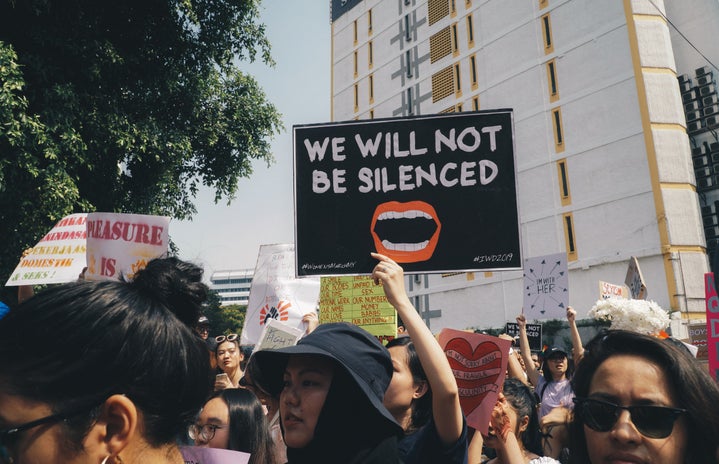A father revs up his motorcycle before charging at his 20-year-old daughter, who was walking with a friend to their shared dormitory, and violently massacring her for ‘disrespecting tradition.’ Last week, she refused to marry a stranger from across the ocean who her father had chosen.
An older brother aimed his gun at the center of his 16-year-old sister’s forehead when he caught her with an unknown man outside of school hours. The discarded uniforms in the living room were all the justification he needed.
A husband approaches his wife with a hammer, ready to bash her head into the pot of boiling soup she was preparing for dinner. He read suspicious texts between her and a male colleague earlier that day.
These slaughtered women are eventually forgotten.
Women’s History Month was recognized throughout the month of March, with media reports and education celebrating women’s achievements, embracing femininity and womanhood, and learning about women pioneers. While this coverage is indeed important, there seems to be a focus on sensationalizing women by only highlighting the “success stories.” Much less discussed are adversities that women were not able to overcome due to systemic circumstances beyond their control. Even less discussed are the fact that these horrors, while they may be referred to in the past tense, still occur. An example of these dehumanizing crimes against women are honor killings.
As the term may suggest, “honor killings” are when a woman or girl is murdered, usually by a male family member, to restore ‘honor’ to her family. In communities that uphold strict patriarchy, a woman’s value is directly tied to her “purity” and reputation. In these societies, women and girls are closely monitored by their male relatives, including their fathers, brothers, uncles, and spouses. A woman is objectified as a “spotless trophy,” and the men in their families display this trophy in a glimmering case placed at the forefront of their house. A slight smudge on this trophy or crack on its case– whether that be because the woman was raped or assaulted, or whether that be because the woman attempted to separate from her husband– results in this trophy losing its prestige and value. The trophy no longer has any worth, and displaying it would only bring about feelings of judgment and shame. These men could not protect their trophies from filth and grime, and staring at the physical reminder of their failure is unbearable. To these men, the only logical solution is to dispose of this tainted trophy– to kill these women.
Honor killings have happened– and still happen– in all regions of the world, though it should be emphasized that certain regions are more susceptible to its normalization. Being illiterate, unemployed, economically vulnerable, having inadequate social support, being forced to be dependent on men, and lacking knowledge regarding legal rights are factors that impose a greater risk of becoming a victim of honor-based violence. In some regions, the patriarchal system is so extreme that it considers women to be men’s property and allows men to do whatever is ‘needed’ to keep their women ‘in line.’
It is important to note that no religion justifies honor killings or abuse towards women. There is rampant stigma and misinformation spread about certain religious identities and cultural groups because it is easier to villainize a group of people who are in foreign lands than it is to realize the root issues of such crimes. The dehumanization of women that rationalizes honor killings is a symptom– not a cause– of the exploitation of power. I hope that, continuing throughout the year, we take a moment to remember and honor the lost lives of these victims of oppression.
Sources:
https://www.britannica.com/topic/honor-killing
https://www.ncbi.nlm.nih.gov/pmc/articles/PMC9819454/
https://www.amnestyusa.org/updates/the-horror-of-honor-killings-even-in-us/
https://www.brandeis.edu/projects/fse/muslim/honor.html
https://www.aljazeera.com/features/2021/8/1/murdered-women-a-history-of-honour-crimes


